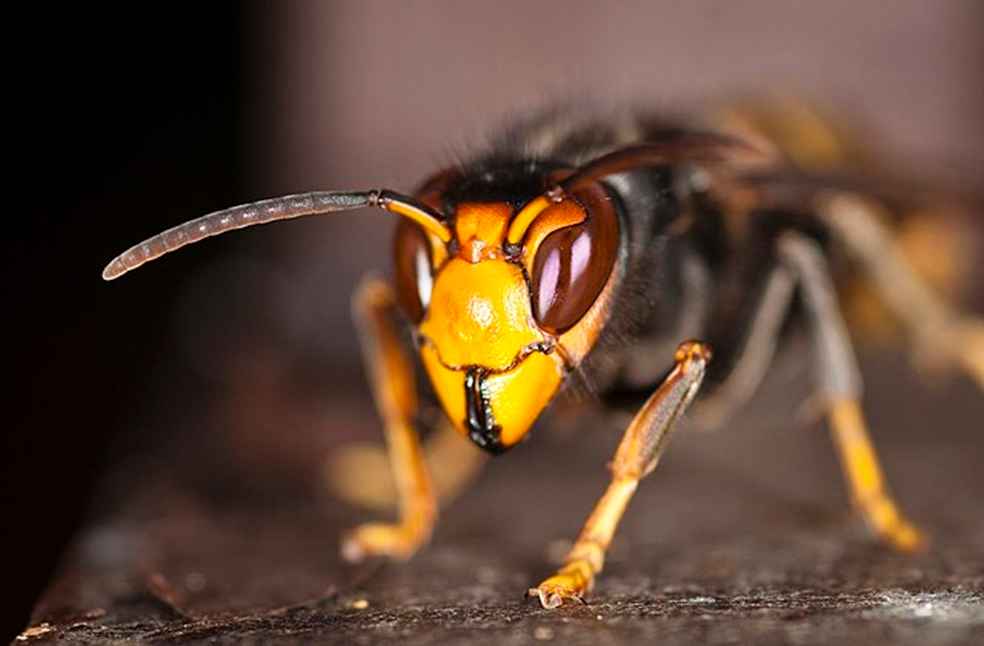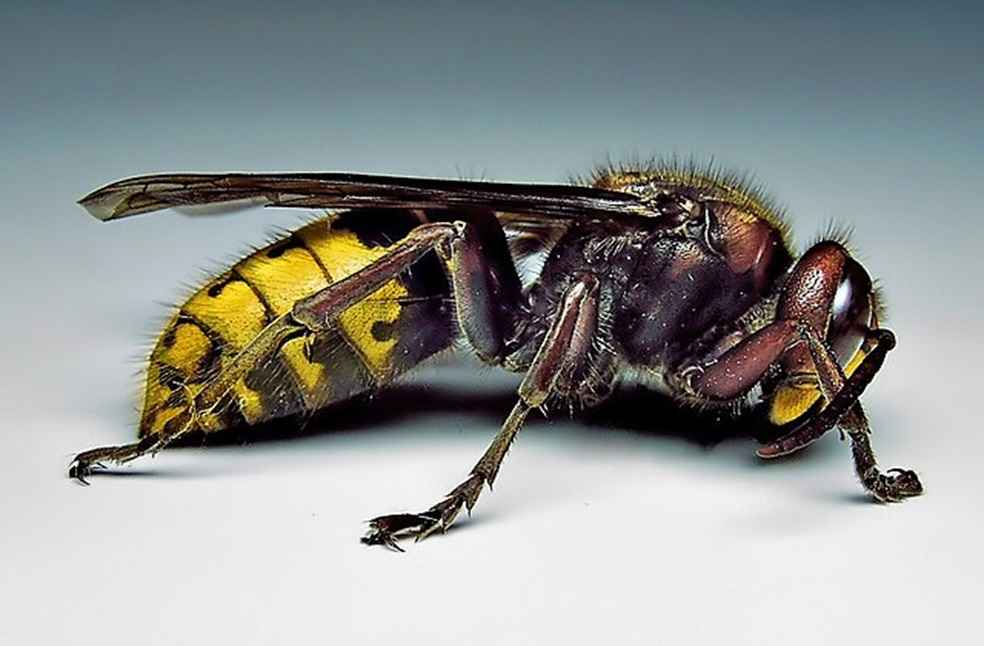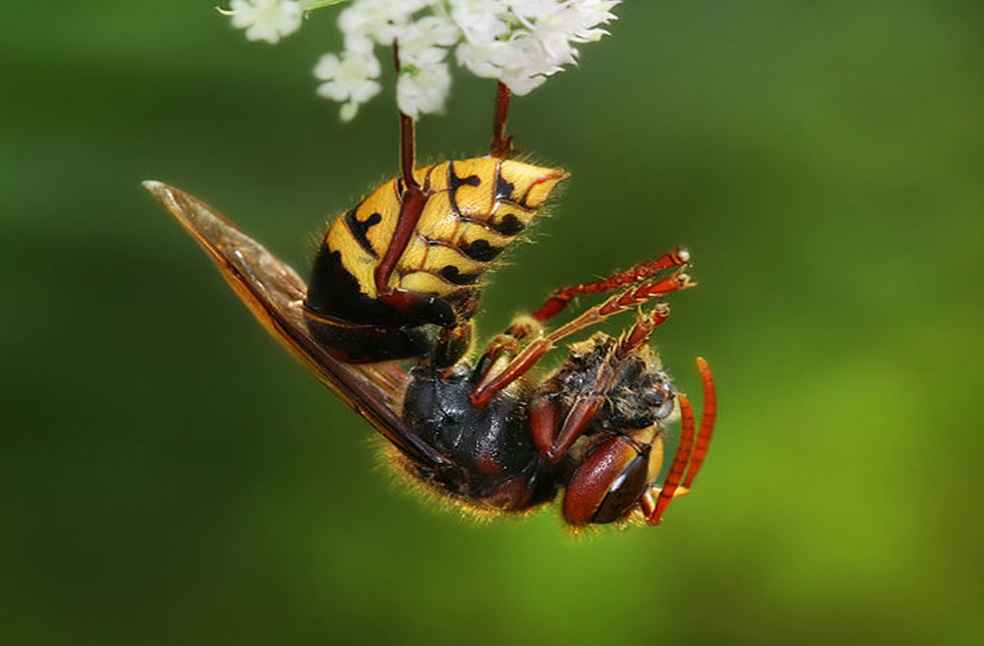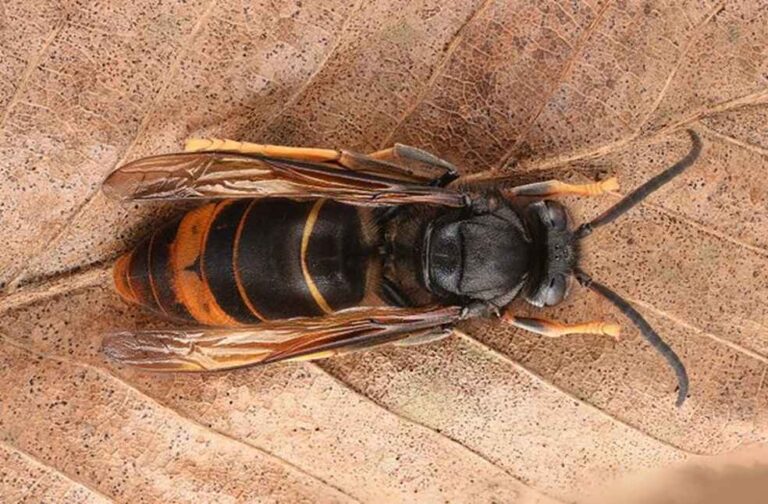United Kingdom: Researchers at the University of Exeter have developed an automated system called ‘VespAI’ to detect invasive Asian hornets. The findings of this research were published in the journal Communications Biology.
Their study found that artificial intelligence (AI) can help in determining those killer giant Asian hornets and alerting authorities. It attracts hornets to a monitoring station and captures standardized images using an overhead camera. VespAI can identify the species of Asian hornets with almost perfect accuracy. This permits powers to take swift action against the hornets.
Most of Europe and parts of East Asia are already infested with Asian hornets, also known as yellow-legged hornets. Their presence was recently reported in Georgia and South Carolina in the United States. Due to ongoing yearly invasions, there is an urgent need to improve monitoring systems in the UK.

Dr Thomas O’Shea-Wheller, from the Environment and Sustainability Institute on Exeter’s Penryn Campus in Cornwall, stated that, “Our goal was to develop something cost-effective and versatile, so anyone from governments to individual beekeepers, could use it. This study tested a prototype version, and the results were encouraging. VespAI shows promise as a robust early warning system to detect Asian hornet ingressions into new regions.”
The VespAI is a compact device with a small processor that remains dormant until it identifies a hornet-sized insect with its sensors. When an image of a hornet is captured, the system’s AI algorithm kicks in and examines it to identify if it’s an Asian hornet (Vespa velutina) or a native European hornet (Vespa crabro).
If the algorithm recognises an Asian hornet, a picture alert is sent to the user for verification. Currently, the UK response system depends on individuals spotting, identifying, and reporting Asian hornets. However, this method contains limitations.

Dr Peter Kennedy, who conceptualized the system remarked that, “Unfortunately, the majority of reports submitted are misidentified native species, meaning that the responsible agencies have to manually validate thousands of images every year. Our system thus aims to provide a vigilant, accurate and automated surveillance capability to remediate this.”
“In some parts of Europe, detection relies on hornet trapping, but such traps kill a lot of native insects, and do little to impact Asian hornet numbers. VespAI does not kill non-target insects, and thus eliminates the environmental impact of trapping while ensuring that live hornets can be caught and tracked back to the nest, which is the only effective way to destroy them.” Dr Kennedy added.

Throughout the project, the system experienced rigorous testing on the island of Jersey, which is prone to frequent attacks by Asian hornets owing to its closeness to France. The monitor was disclosed to various insects such as Asian hornets, European hornets, and others. However, VespAI’s detection algorithm was able to successfully characterise each of these insects, even when present in extensive numbers.
A crew of biologists and data scientists from the University of Exeter will deploy further prototypes in partnership with Defra, the National Bee Unit, the British Beekeepers Association and Vita Bee Health. The system seeks to bolster exclusion measures against the rising range of Asian hornet sightings in the United Kingdom.



